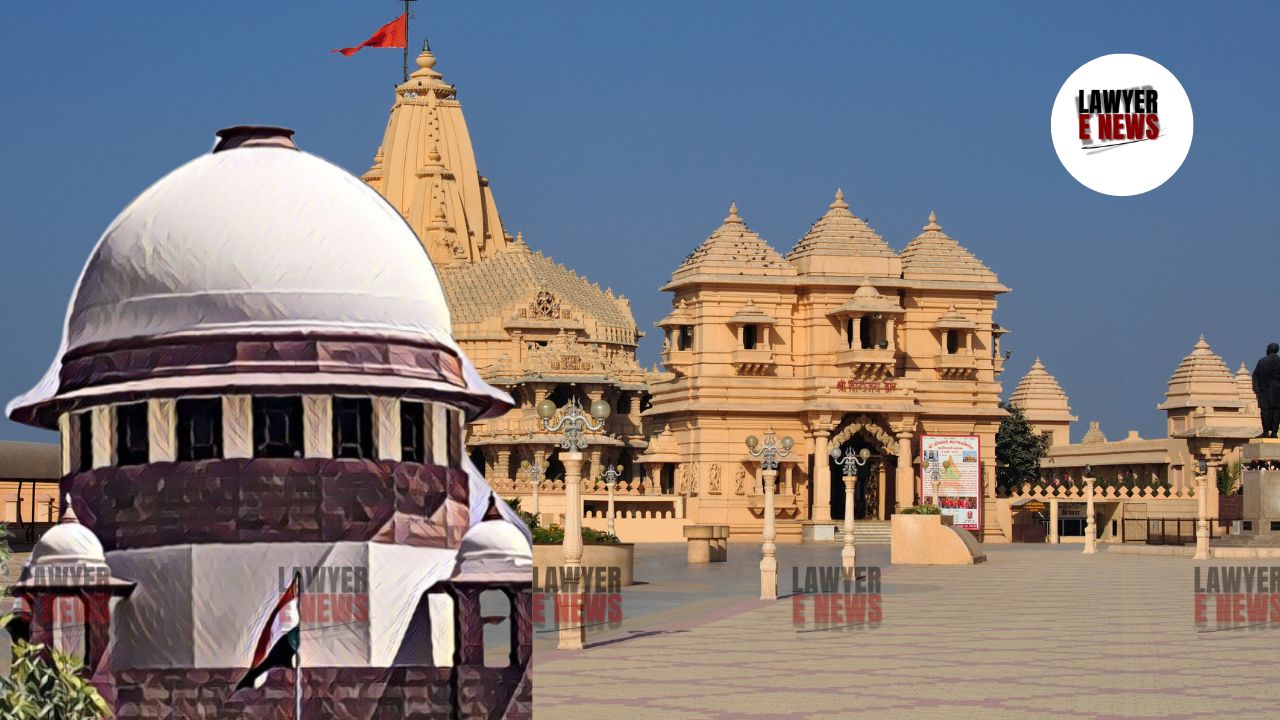-
by Admin
15 February 2026 5:35 AM



Today, on 25 Oct. 2024, Supreme Court declined to issue a status quo order to halt the ongoing demolition of Islamic structures and homes belonging to Muslims in Gujarat’s Gir Somnath district. This decision came after the Gujarat government, represented by Solicitor General Tushar Mehta, assured the Court that the disputed land would remain under state control and would not be allocated to any third party until further orders.
A bench of Justices B.R. Gavai and K.V. Viswanathan found it unnecessary to pass an interim order based on the Solicitor General’s assurance.
“Learned SG says that until further orders, possession of the land shall remain with the government and shall not be allotted to any third party. In this light, we don’t find it necessary to pass any interim order,” the Court stated. It further clarified, “The pendency of the present SLP should not be construed as a stay on the proceedings, and the High Court can continue with the matter.”
Auliya-E-Deen Committee’s Challenge
The Court was hearing a Special Leave Petition (SLP) filed by the Auliya-E-Deen Committee, which challenged an October 3 order from the Gujarat High Court. The High Court had previously refused to halt the demolition drive or issue a status quo order regarding the contested land.
Senior Advocate Kapil Sibal, appearing for the Auliya-E-Deen Committee, argued that the land—claimed to be in the Committee’s name since 1903—had been demolished in a "high-handed" manner, disregarding its legal and historical significance. The land, he noted, is registered under the Waqf Act. Sibal questioned the government’s right to proceed with demolitions without a conclusive determination of ownership, alleging that the actions taken were in violation of administrative protocols.
In response, SG Tushar Mehta presented documents indicating that the disputed land is now under the possession of the Somnath Trust. He argued that the petitioners’ ownership claims were misleading and highlighted that previous appeals to establish ownership had been dismissed by courts. According to Mehta, the government has the legal authority to clear what it considers "illegal constructions" on the land.
During the hearing, Sibal read out an order issued by the district collector, arguing that the demolitions were in violation of specific directives set by the collector’s office. Justice Gavai subsequently requested Mehta to confirm that the government would adhere to these conditions in any future use of the land. Mehta assured the Court that the government would comply with the collector’s guidelines and that the land would be reserved for departmental use only.
Although the Supreme Court initially considered granting a status quo order, it refrained from doing so after Mehta’s assurance that the land would remain under state control and would not be transferred to any third party. The bench concluded that the High Court proceedings could continue without any interim stay from the Supreme Court.
The Supreme Court’s order thus leaves the Gujarat High Court free to examine the matter further. This approach underscores the Court’s stance that assurances from the state can sometimes substitute for immediate interim relief, especially in complex property disputes tied to religious structures.
This decision allows the Auliya-E-Deen Committee to pursue its legal challenge in the High Court while holding the state accountable to its commitments regarding the disputed land. The ruling also highlights the Court’s consideration of state assurances in sensitive cases, suggesting that judicial intervention is not always necessary when the government agrees to maintain the status quo.
The case will now return to the Gujarat High Court for further proceedings, with the Supreme Court monitoring compliance with the assurances provided by the state.
Auliya-E-Deen Committee v. State of Gujarat
